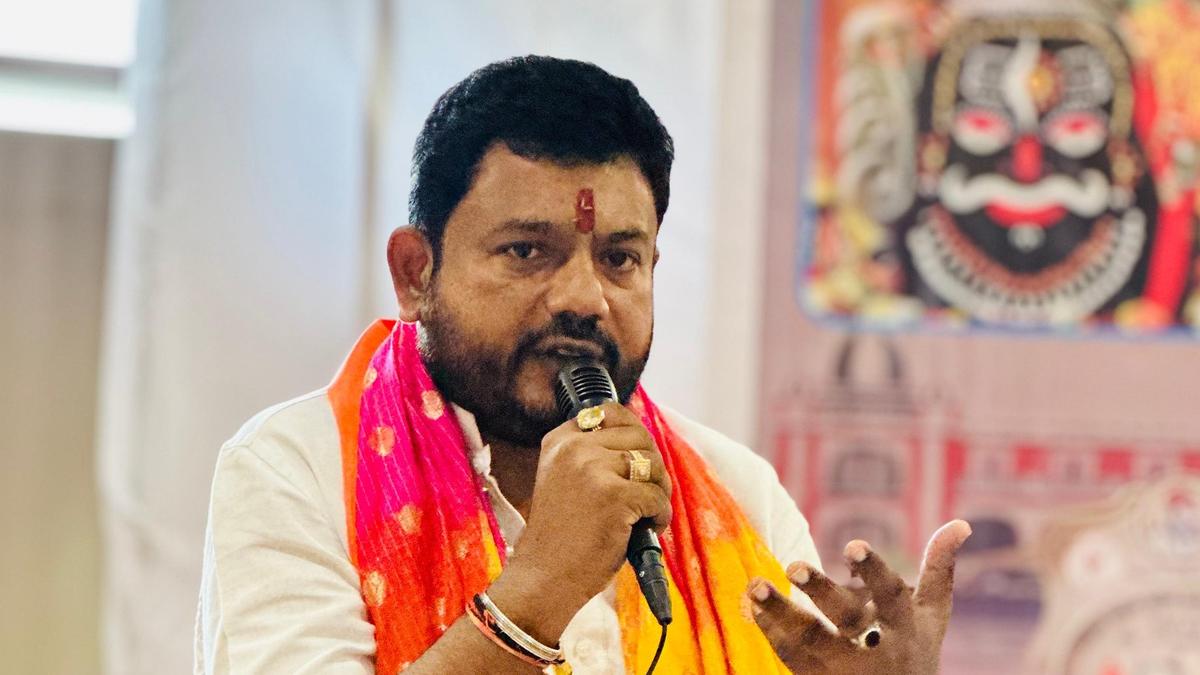5 Shocking Reactions to BJP Leader’s Cow Urine Ritual Proposal for Garba Entry
Indore, Sep 30: A major Navratri controversy has erupted in Indore after BJP district president Chintu Verma proposed a surprising requirement for Garba attendees. Verma suggested that everyone entering Garba pandals during Navratri 2024 should perform aachman—a traditional Hindu practice that involves sipping cow urine for purification.
According to Verma, this practice aligns with Sanatan Dharma and is essential to maintain the sanctity of the Garba celebrations. “No true Hindu would refuse this ritual,” Verma stated during his press conference.
1. Political Reactions to Cow Urine Aachman
The proposal immediately triggered a wave of criticism, with Congress leaders accusing the BJP of using polarization tactics ahead of the Madhya Pradesh elections. Congress spokesperson Neelabh Shukla called the proposal “unnecessary and divisive.”
Shukla further challenged BJP leaders to perform the cow urine ritual themselves and share it on social media. He criticized the party for ignoring real issues like the poor state of cow shelters in the region, which have often been a topic of public concern.
2. Public Reactions: Divided Opinions Emerge
Locals in Indore have expressed mixed reactions to the proposal. Some believe that aachman is an essential part of Hindu religious practice, while others think it is an unnecessary and intrusive move.
- Suman Tripathi, a local Garba enthusiast, said, “I believe the ritual is a spiritual act, but it shouldn’t be forced. Everyone should have the freedom to practice their beliefs without such conditions.”
- Ravi Patel, a businessman from Indore, criticized the proposal: “This is overreach. Cow urine has cultural significance, but making it mandatory for Garba entry doesn’t make sense. The festival should be about celebration, not control.”
- On the other hand, Aarti Sharma, a devoted Hindu, supported the proposal, saying, “This practice is deeply rooted in our religion. It should be honored, especially during a sacred festival like Navratri.”
These public reactions show a clear divide among the community, with some supporting the preservation of Sanatan traditions while others view it as an unnecessary imposition.
3. Electoral Impact of the Controversy
As the Madhya Pradesh elections approach, political observers believe this controversy could influence voter sentiment. The BJP’s focus on religious rituals may resonate with certain sections of the electorate, while others may see it as a distraction from more pressing issues like jobs, infrastructure, and healthcare.
The BJP has often used cultural and religious issues as a means to consolidate its voter base, and this latest proposal for cow urine aachman appears to be part of a larger strategy.

4. The Role of Tradition in Garba Celebrations
While Verma claims the aachman ritual is in keeping with Navratri traditions, some religious scholars have pointed out that forcing such practices could lead to unnecessary tensions within the community.
Traditionally, Navratri is celebrated with dance, devotion, and community participation. Introducing mandatory religious practices, especially ones as controversial as cow urine rituals, could polarize attendees and detract from the festive atmosphere.
5. What Lies Ahead?
As the Navratri 2024 festival approaches, it remains unclear whether Verma’s proposal will be implemented. The controversy surrounding the cow urine aachman continues to grow, with political and religious leaders weighing in on both sides of the debate.
Will this Navratri controversy impact the Madhya Pradesh elections? Only time will tell, but the proposal has certainly sparked conversations that go beyond the Garba pandals.
As the Navratri 2024 festival draws near, the uncertainty surrounding the implementation of Verma’s proposal looms large. The controversy surrounding the cow urine aachman has escalated, with political and religious leaders expressing their opinions from both sides. Whether this Navratri controversy will impact the Madhya Pradesh elections remains to be seen. However, it has undoubtedly sparked discussions that extend beyond the Garba pandals. The unfolding controversy is expected to be leveraged by both political parties as part of their campaign strategies. The outcome of this ongoing debate holds significant implications for the upcoming Madhya Pradesh elections, as it places religious identity and cultural traditions at the forefront of the political narrative.



